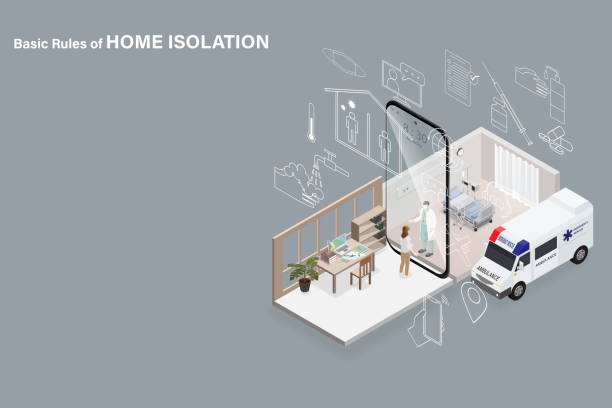With its ability to sort, analyze enormous quantities of data in ways that reveal trends otherwise ignored, AI is revolutionizing industries across many sectors. Of these sectors, the real estate and mortgage sector is certainly an area affected by the potential to predict housing market trends, thereby affecting mortgage rates. Here is how it’s creating ripples there and what it means for homebuyers, sellers, and lenders:.
Table of Contents
ToggleAI-Powered Market Predictions: The New Frontier
This ability of AI to unravel concealed trends in big datasets and predict accurate future movements in the housing market is based on advanced AI techniques like:
Machine Learning Models – Machine learning is an overall category of AI that trains algorithms to look for trends or patterns in historical data and to make predictions on future events. In real estate, it’s a matter of analyzing enormous factors, including historical prices, economic indicators, demographic trends, and even social media sentiment. AI can predict housing price fluctuations and changes in market demand with far greater precision by processing all these data points.
Predictive Analytics – Predictive analytics is the ability to calculate the exact likelihood of outcomes based on statistical algorithms and techniques of machine learning. For the housing market, it can be in the form of predicting future price trends, analyzing regional market shifts, and understanding changes in the economy affecting real estate. AI-driven predictive analytics can help great in terms of when to buy or sell the property, considering that changed market status, making a decision for investors and home owners.
Big Data Integration – AI thrives on big data. Diverse sources such as property sales records, economic reports, and consumer behavior analytics may be integrated into form a holistic view of market dynamics that AI can present. With this holistic view, predictions are more accurate and stakeholders can predict any shifts in housing markets that may influence decisions.
How AI affects Mortgage Rates
Beyond market prediction, AI is said to go further to touch upon mortgage rate adjustments. This is how it impacts on mortgage rates:
Risk Assessment – The risk assessment and pricing process can be enhanced through the application of AI by analyzing the financial profiles of the borrowers, credit history, and economic conditions. Advanced algorithms can assess the risks with much more accuracy as compared to those methodologies. AI also enables a lender to set the best price for loans as it can identify and assess factors that would lead to defaults.
Dynamic Rate Adjustments – Presently, AI will process data in real-time and adjust mortgage rates according to current market conditions. For instance, if suddenly, or without warning, economic indicators were to change abruptly, or the trends in housing market changed, then it could suggest new rates of adjustments for the mortgage as far as risk was concerned. In that sense, AI makes sure that the rates are on a level with the market conditions, whereby the lender and the borrower benefit.
Customized Mortgage Quotes – AI will allow lending institutions to have pre-computed customised mortgage interest quotes for every individual borrower based on the details of the borrower. Based on AI analysis of stable income levels, credit score, and borrowing histories, customized mortgage loan offers might be prepared with specific interest rates related to individual risk profiles. This will bring customization closer to real-life financial conditions for a borrowing experience.
Benefits of AI in Housing and Mortgage Markets
Better accuracy – AI can process large data and recognize patterns. Such complex analysis, in the real estate market, gives more accurate predictions and better information to buyers, sellers, and investors; therefore, uncertainty is avoided, which often comes with such transactions.
Increased Efficiency – AI simplifies the mortgage approval process because it automates data analysis and risk assessment tasks. Such efficiency translates into faster processes, quicker loan approval, and better customer experience for the lenders. They will also have savings in terms of cost and improvement in operations due to AI-driven automation.
Improved Risk Management – AI ensures that there is adequate risk management since it provides lenders with a detailed insight into the borrower’s profile as well as market trends. This means that through proper risk profiling and dynamic change in rate, lenders prevent most losses for maintaining financial stability.
Challenges and Considerations
Data Privacy – Using AI in real estate and mortgage transactions involves personal data and sensitive financial information. Ensuring effective data privacy and security becomes an important issue while protecting the information of the borrowers and thereby developing trust between the borrowers and AI-driven systems.
Algorithmic Bias – The good quality of an AI model is but a reflection of its training data. Therefore, in the presence of biases in the data set, the AI systems are bound to inherit the same biases; these biases might reflect in the predictions and decisions made by AI systems. It is fundamentally indispensable to prevent algorithmic bias and ensure fairness in AI-driven processes that assure equitable outcomes.
Technology Adoption – Although there are numerous benefits of AI, its sheer adoption to an entire industry requires significant investments in technology as well as training. The new systems and processes require acceptance not only by the lenders but also by the borrowers. It is, therefore, a barrier to the widespread implementation of AI.
Conclusion
AI is revolutionizing the housing and mortgage markets with advanced predictive capabilities and better risk management. This shall change the dynamics of how a real estate transaction is conducted, based on its ability to analyze big data, predict market trends, and personalize mortgage offers. Though it’s going to take some time to mitigate concerns such as data privacy and algorithmic bias, the potential benefits of AI in forecasting housing market trends and influencing mortgage rates are profound. Of course, with the passage of time and advancement in technology, AI will continue to sculpt the future of real estate and lending, bringing new opportunities and efficiencies to all stakeholders as they engage in this process.

